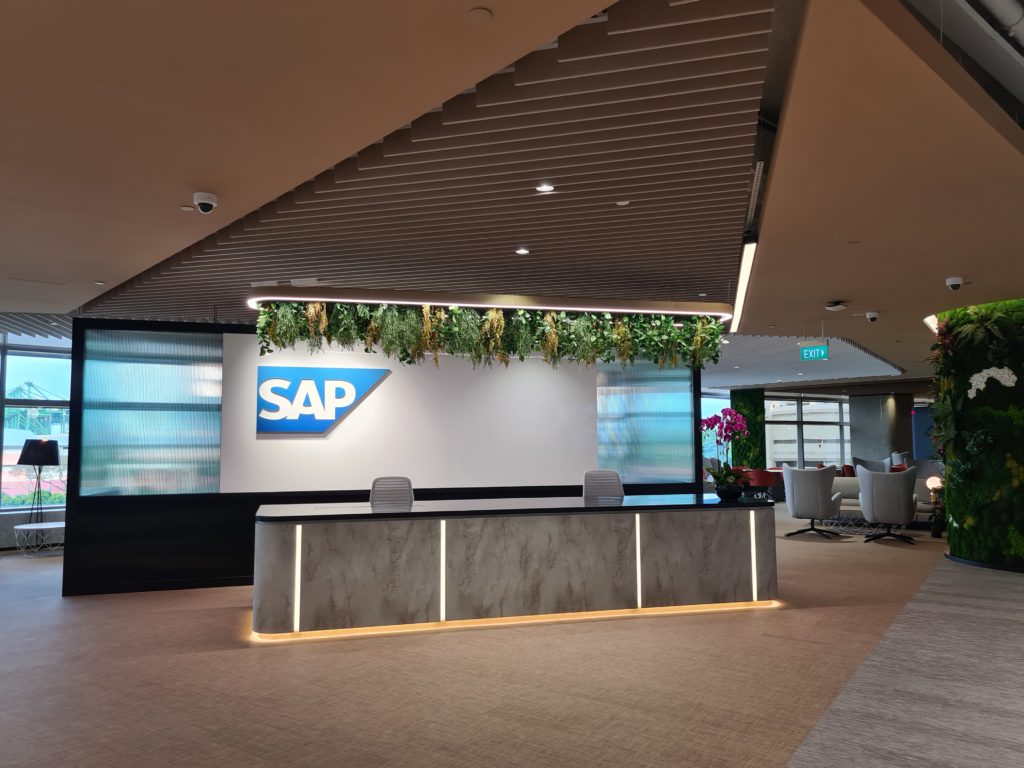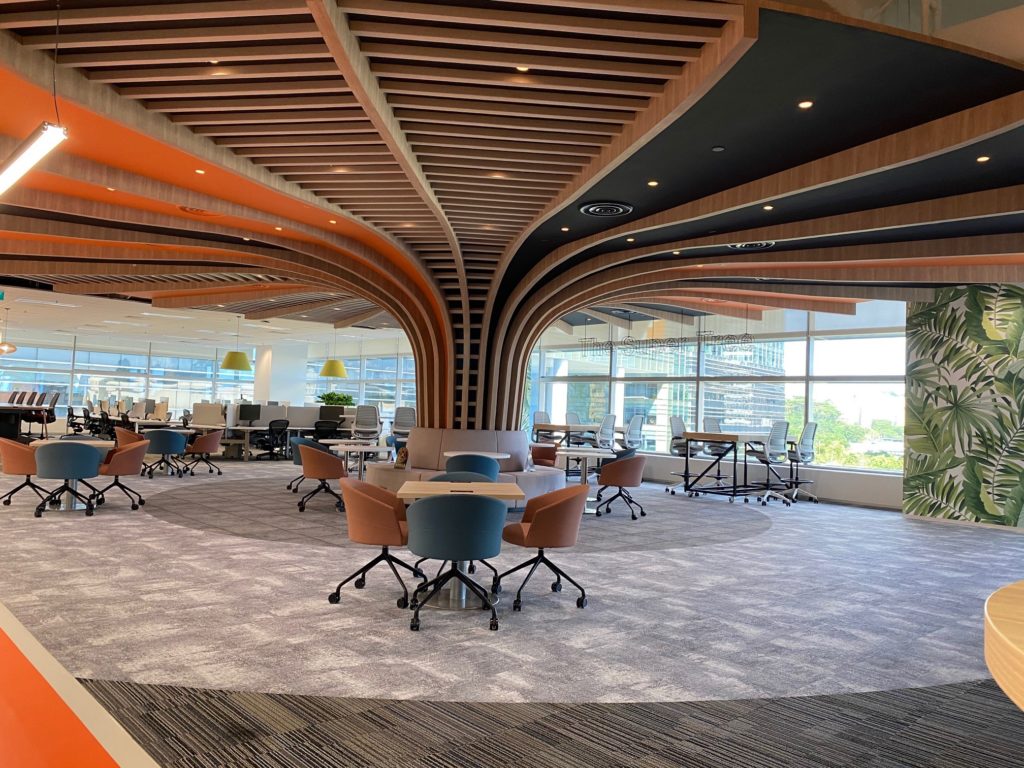Redefines workplace model in the never normal, with a focus on sustainability

Singapore, South East Asia — November 30, 2021 — SAP SE (NYSE: SAP) today announces that it has transformed its traditional office with dedicated desks to an activity-based workspace with free seating to maximize team collaboration and social interaction, the first in Southeast Asia (SEA) today. The new office is a result of SAP’s Pledge to Flex initiative in June 2021 to empower employees to choose where to work and when. With the help of independent consultant Change Worq, SAP reassessed its office footprint and redesigned it for a hybrid workforce.
SAP found that 88% of employees spent less than 50% of their working day at their desks based on a utilization study. Focusing on employee needs, the office now offers flexible spaces where employees can choose a suitable location for their activity, whether a quiet room for confidential discussions or a lounge area for the team to get together. The office promotes in-person activities for brainstorming, collaboration, and social interaction that employees miss about the office when working from home.
“Coming into the workplace is no longer about the physical amenities, it is about the employee experience which revolves around the 3Es – employee engagement, environment, and education. Engagement means offering the best career experience to our employees through our diversity and inclusion initiatives where everyone has an equal opportunity to succeed,” said Verena Siow, President and Managing Director, Southeast Asia at SAP.
“Climate crisis requires collective action and supporting the environment is a key area for us to rally our employees through our sustainable practices and by reducing our carbon impact. In addition, empowering our employees for the future of work with digital skills and competences in growing areas of demand such as data analytics and AI in the Fourth Industrial Revolution helps them thrive as their jobs evolve,” added Siow.

Employee engagement for diversity and inclusion
SAP’s diversity and inclusion strategy underscores the company’s ability to attract and retain the best employees and drive innovation. Women constitute 51.2% of the workforce at SAP SEA, including 46.1% of women in management positions.
SAP SEA promotes mental health in the office with wellness rooms for relaxation and initiatives such as Focus Friday, where SAP has no internal meetings in the afternoons. In addition, the local Employee Engagement teams drive numerous in-person and virtual activities and initiatives to promote physical, mental, and social health for all employees and their families throughout the year.
SAP has won numerous HR awards in South East Asia for its commitment to employee experience, including the Tripartite Alliance Award 2021 for Fair and Progressive Employment Practices, Best Companies to Work for in Asia by HR Asia for SAP Thailand in 2020, and Top Employers Asia Pacific for SAP Indonesia and SAP Philippines in 2018.
Environmental initiatives in the workplace
According to Our World in Data, energy use in commercial buildings contributes to 6.6% of greenhouse gas emissions globally. With a carbon emission goal of 90 to 110 kt in 2021, SAP minimizes its carbon footprint by optimizing its office space and when employees are not commuting to work. Aligned with the Singapore Green Plan for a sustainable future, SAP has dedicated 5% of the total space to greeneries that minimizes indoor air pollutants and eco-friendly innovations such as energy-efficient LED bulbs for a healthier and greener work environment. Of the 4,000sqm office space, 70% of the area adheres to green labelling protocols.
SAP has also launched its new SAP Sustainability Center within the SAP Experience Center to demonstrate its commitment to sustainability. Customers and partners can learn how to use technology to drive sustainable development goals through hands-on demonstrations.
Employee learning and training for the future of work
According to the World Economic Forum, more than 1 billion jobs, almost one-third of all jobs worldwide, are likely to be transformed by technology in the next decade. In response to this constantly changing nature of work, new skills need to be developed and expanded.
Individuals and teams must find ways to access organizational knowledge and learning, and SAP, through its variety of learning and development offerings on Success Map, enables employees to grow their knowledge and skills which open up more opportunities to develop their career. SAP also fosters future-of-work-learning initiatives, such as “The Future Learning Lab”, an open group of learning professionals and interested employees who want to actively shape the future of learning at SAP in a creative way.
Additionally, SAP also nurtures the future workforce through private-public initiatives like ASEAN Data Science Explorers that equip students with data analytics skills to solve pressing social issues. SAP trains over 3000 students through higher learning institutions to meet the growing demand for data scientists and analytics through its partnership with the Malaysia Digital Economy Corporation (MDEC). SAP University Alliances is another way SAP works with educational institutions in ASEAN to develop the next-generation talent for the future of work.
For more information, press only:
Darryn Lim, darryn.lim@sap.com
Omnicom PR Group for SAP, sng.sap.wg@omnicomprgroup.com